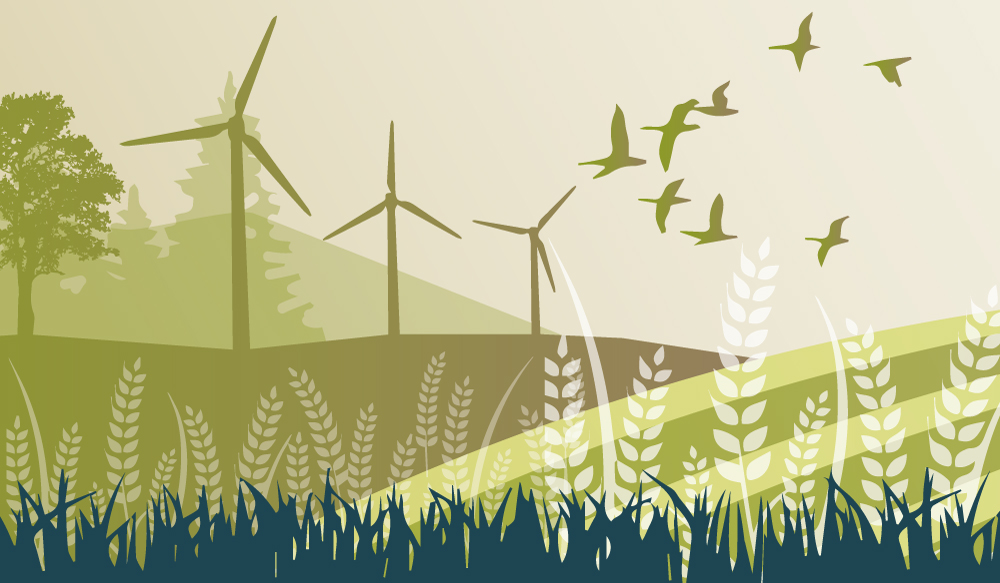- Home
- Knowledge library
- Evaluating strategies to reduce greenhouse gas emissions from dairy production systems. How can we reduce the carbon footprint of UK dairy farms? PhD
Evaluating strategies to reduce greenhouse gas emissions from dairy production systems. How can we reduce the carbon footprint of UK dairy farms? PhD
Summary
The Challenge
While livestock production supports livelihoods and food security, there are increasing concerns regarding the emissions of greenhouse gases (GHG) at a global level: according to the FAO, livestock produces globally about 14% of global greenhouse gas emissions, with cattle accounting for approximately 65% of livestock emissions. In the UK, however, the contribution of livestock is significantly lower than the global average. In response to the global climate crisis, the UK government has set a national target of net zero carbon emissions by 2050, with the National Farmers Union declaring its own more ambitious net zero target of 2040 for the whole agricultural sector in England and Wales.
For the industry to reduce carbon emissions whilst growing output, the dairy sector will need to increase the efficiency of production and offset the carbon emitted.
Key findings
The results from this simulation study suggests:
- An optimum replacement rate of 22% to reduce GHG emissions without impacting milk production.
- Peas without soya hulls resulted in the lowest emissions per litre of fat protein corrected milk (FPCM).
- Soya bean resulted in the highest emissions per litre of FPCM.
- Net zero is achievable with extensive afforestation and feed additives.
This project demonstrates how UK dairy farming could adapt production systems to reduce greenhouse gas emissions and reach net zero targets. Many of these optimal targets to reduce net emissions were found to be optimal from economic and productivity perspectives.
Downloads
41240004PhDModellingCEmissionsDairyFINALAbout this project
Aims and approach
Aim: To investigate the impact of nutritional, herd management, sequestration, and offsetting strategies on the greenhouse gas emissions from a typical UK dairy farm.
The estimation of methane emissions from dairy cows is often based on small trials, utilising a large variety of methods to collect and analyse data. This has resulted in extremely variable predictions of methane emissions and uncertainty surrounding the most influential characteristics of dietary composition. A novel prediction equation for methane emissions from dairy cattle was created by combining outputs from 32 previously published studies using 15 dairy cow diets typically fed in the UK. The equation could predict methane emissions based on energy and fibre concentrations in the diet, with the results found to be a balanced compromise of all the previously published literature. This new prediction equation was then incorporated in the REMEDY whole farm simulation model and used throughout the study to predict the influence of diet in reducing greenhouse gas emissions.
To study strategies to lower dairy farm greenhouse gas emissions, the REMEDY model simulated the production and reproduction on an example typical semi-seasonal UK dairy farm of 124 hectares, containing 140 dairy cows. The scenarios simulated included: management to vary replacement rates and altering the sources of dietary protein. The strategies were investigated to meet the challenge of reaching net zero greenhouse gas emissions whilst still maintaining a high level of milk production.
The options considered included:
- Increasing carbon sequestration (CS) by converting the production system to a fully housed system and converting available land woodland.
- Use of feed additives to achieve a 30% reduction in enteric methane emissions.
- Replacing slurry storage systems with an anaerobic digester.
- Altering sources of dietary feeds.
- Reduction or elimination of fertiliser use.
- The reduction of the milking herd size by 10 or 20%.
Student
Fern Baker, University of Nottingham
Related resources


